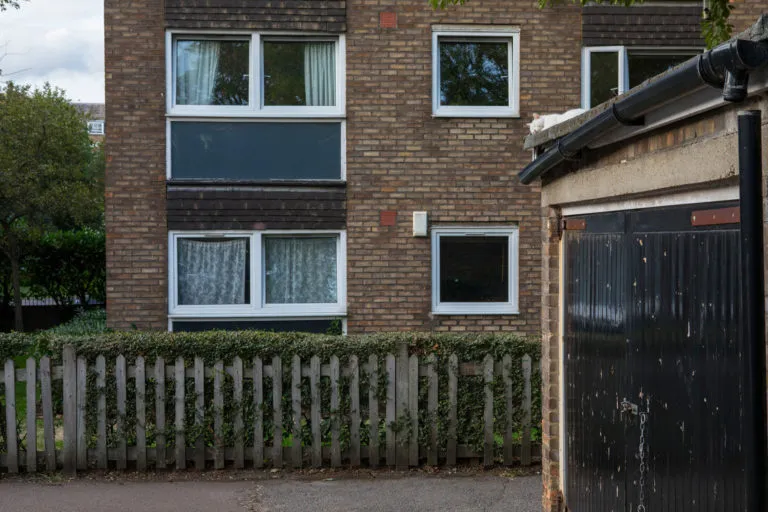Scrapping Section 21: the promise we’re still waiting for
Published: by Jenny Lamb

Four years ago today on 15 April 2019, the then-Secretary of State for Housing, James Brokenshire, announced that the government would abolish Section 21 ‘no fault’ evictions. We had been campaigning for decades for this moment, to help bring security to the 10 million people in England who rent privately. Four years on and we’re still waiting for this pledge to be made a reality.
In the intervening years, the government’s commitment to scrapping Section 21 evictions has been more conversation than action; the 2019 Queen’s Speech promised us a Renters’ Reform Bill, the government’s White Paper in 2022 reiterated the plans and, in March this year, the Minister for Housing and Planning indicated that the bill would be brought forward by the autumn.
While these have been welcome developments, repeated promises and empty words aren’t good enough. As the cost of living crisis continues to bite, renters living with the threat of eviction hanging over their heads need action now to reinforce their rights and secure their homes. Four years is too long to wait, especially when the rate of Section 21 evictions has increased alarmingly in the last year.
In this blog post, we’re going to talk about why Section 21 needs to be scrapped, the alternative routes to eviction still available to landlords, and how the private rented sector will be changed for the better once the government introduces the Renters’ Reform Bill.
What is a Section 21 notice?
A Section 21 is an eviction notice that landlords can serve, which provides no reason for the eviction. A renter is given just two months to leave their home and find somewhere else to live. A Section 21 can be served at any time after a fixed term has expired.
The unpredictable nature of Section 21 means that private renters live in constant fear of eviction. The threat of losing their home forces renters to accept anything, from unlivable conditions to negligence and harassment from their landlords, because they’re too scared of being served a notice if they raise a complaint or ask for improvements. It’s no secret that a significant number of homes in the private rental sector (PRS) are substandard or ‘non-decent’, meaning they have a serious hazard that poses a risk to the health, safety or wellbeing of a tenant. Our teams speak to renters who describe appalling conditions – from severe damp and mould to exposed wiring, broken doors and windows, and even asbestos.
Even though conditions in the PRS may be the worst-kept secret in housing, private renters who complain about disrepair are at a much greater risk of eviction. A quarter of households in the PRS (that’s 2.8 million households) have not even tried asking for repairs or improvements for fear of losing their homes.
When a Section 21 has been served, it’s not easy for households to just find somewhere else to live. Renters depend on local networks, amenities and services, which makes uprooting all the more difficult. Rents have been skyrocketing – nearly 1 in 3 private renters reported that their rent had been hiked between August and October 2022 – and the numbers just keep rising. This means that renters often need to make the impossible choice between leaving the area they call home, and finding the money to pay extortionate rents when they are already struggling to make ends meet.
Households living in the PRS feel they have no alternative but to accept poor conditions and treatment or excessive rent hikes. They are trapped living in and paying over the odds for substandard housing.
Section 8 notices
Without Section 21, landlords will still be able to evict tenants where there is a legal reason to evict. Sounds reasonable, right? Instead of a Section 21, they could serve a Section 8 notice, which requires the landlord to give a reason (or ‘ground’) for the eviction. Whether the reason is that the landlord wants to sell the property, move back in, or because the tenant is in rent arrears, they could all be covered by Section 8.
By abolishing Section 21, we’ll see a fight for more grounds for eviction being inserted into Section 8. The government must ensure that it commits to the objective of removing Section 21, which would improve security and stability for those living in the PRS, enabling them to put down roots and contribute to their communities. At the same time, it must develop robust safeguards against easy or alternative routes for eviction through Section 8, ensuring no loopholes are left open for exploitation. There must be a sufficiently high bar of evidence for landlords to prove that their reasons for eviction are true and justified. When we’re talking about renters losing their homes, the stakes couldn’t be higher. The evidence bar must reflect that.
For four years the Renters’ Reform Bill has been waiting in the wings while the most vulnerable in society bear the brunt of the cost of living crisis, without even having a stable place to call home. The bill presents a real opportunity to scrap Section 21 and give renters the security they deserve.
Renters can’t wait any longer. Sign our petition to demand better.